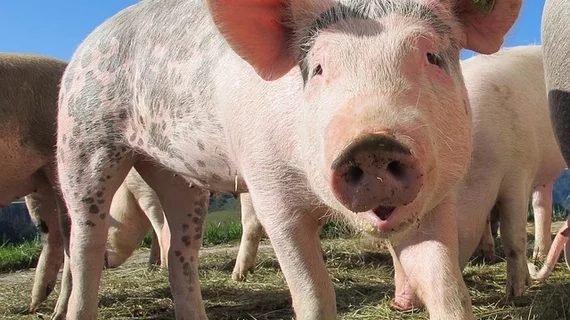After years of dedicated research, surgeons could be transplanting pig hearts into humans within the next year, according to a new analysis published in Circulation.
Cardiac xenotransplantation, or the act of implanting a heart from one species into the body of another, has been a longtime goal of researchers all over the world. The team behind this new analysis, based out of Massachusetts General Hospital (MGH), noted that several recent breakthroughs could help make cardiac xenotransplantation between pigs and humans a reality—and save many lives in the process.
For example, the authors explained, genetic engineering has helped stop the immune systems of primates from attacking pig hearts as “foreign” and attacking them. This same process, the clinicians believe, could potentially work with humans as well.
Pigs have also been engineered that can produce a human protein for limiting blood clotting, solving another significant issue often connected to cardiac xenotransplantation.
In addition, the team added, researchers have developed new drugs that suppress the immune systems of transplant recipients when the organ comes from a different species. Before this crucial step, researchers would attempt to transplant, say, a pig heart into a baboon—but the heart would ultimately be rejected.
One of the biggest questions surrounding cardiac xenotransplantation with pigs and humans, of course, is patient safety. Could such a process lead to humans being infected with infectious diseases, for example?
“That looks quite unlikely,” lead author Richard N. Pierson III, MD, division of cardiac surgery at MGH and a professor at Harvard Medical School, said in a prepared statement.
“The culmination of a lot of research and hard work by our group and others over the last 35 years is that it now looks as though pig-to-human heart transplantation is feasible,” he added.
Pierson thinks the first humans could receive pig hearts by the end of 2021. The team’s full analysis is available here.

